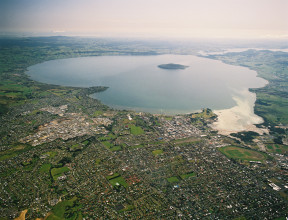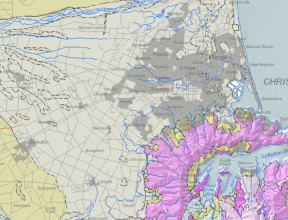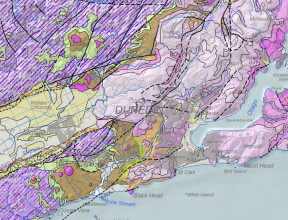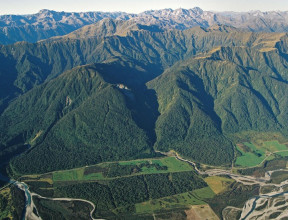
Queenstown-Lakes
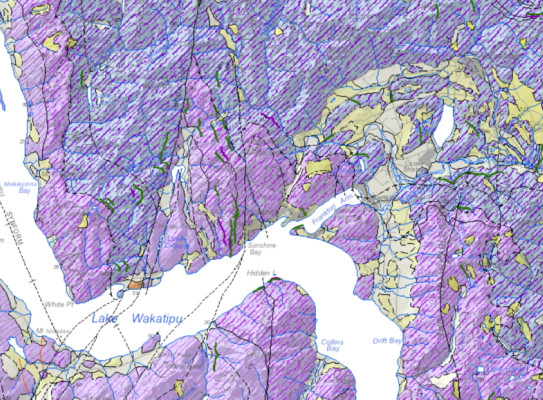
Geological Summary
The Queenstown, Wanaka, Hawea and Cromwell urban areas are founded in Mesozoic schist overlain in valley floors and on terraces by mid-late Quaternary fluvioglacial deposits including alluvial and colluvial sediment and till.
Maps and Information
New geological mapping and data compilation of the Queenstown Lakes area is to commence in 2018. Previously completed maps include:
2000/2018: QMAP 1:250 000 geological map
For wider and more generalised geological context of the Queenstown Lakes area, a 1:250 000 geological map was printed with an accompanying an explanatory text. Digital GIS and image versions of the map are available on DVD. The digital version has since been updated in a national GIS dataset at that nominal scale. The underlying GIS datasets have rich feature attributes.
- Turnbull, I.M. (compiler) 2000. Geology of the Wakatipu area(external link). Institute of Geological & Nuclear Sciences 1:250 000 geological map 18. Lower Hutt, New Zealand. Institute of Geological & Nuclear Sciences Limited. 72 p. + 1 sheet.
- Heron, D.W. (custodian) 2018. Geological Map of New Zealand 1:250 000(external link). GNS Science geological map 1 (2nd edition). Lower Hutt, New Zealand. GNS Science.
A geological map image can be downloaded(external link) or interrogated through the geological map application(external link). For GIS users, the QMAP geological feature layers can be downloaded from GNS Science’s Web Map/Feature Service(external link).
1988: 1:63 360 geological map of the Cromwell area
The Queenstown Lakes District, encompassing the urban areas of Queenstown, Wanaka, Hawea, Cromwell and Alexandra area, is only partly covered by published geological maps in more detail than 1:250,000.
- Turnbull, I.M. 1988. Sheet S133 Cromwell(external link). Geological map of New Zealand 1:63,360 S133. Wellington, New Zealand. Department of Scientific and Industrial Research. 1 sheet + 1 booklet.
